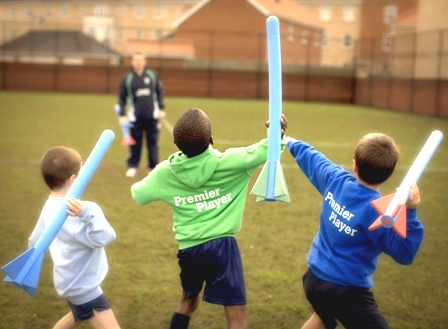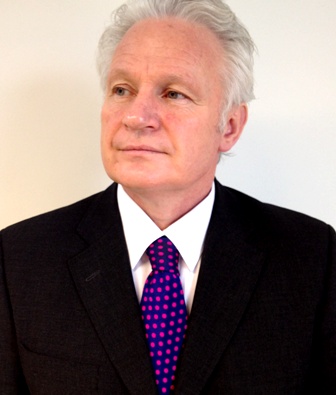
Off the launch pad: COMPASS has soaring ambition on behalf of school sport
COMPASS points for school sport and physical activity
With the first anniversary of his appointment as chief executive of COMPASS imminent,
Martin Gallagher spoke to Jonathan Ives about the organisation’s aims, its place within the sporting environment and what London 2012 may mean for physical activity in schools.

Off the launch pad: COMPASS has soaring ambition on behalf of school sport
Just as Martin Gallagher’s accent reveals his Irish roots and hints at his time spent in South Africa so the breadth of his shoulders and the affable manner of the practised communicator means that it comes as no surprise to discover that he has spent some three decades involved in the playing, coaching and governance of rugby union. With a background in high-performance coaching, including taking Swaziland to the Commonwealth Games and the IRB World Cup, his career has included stints in development for English rugby, as head of domestic Irish rugby and as director of rugby in Canada. In fact his current post, that of chief executive of COMPASS, is, he admits, his first professional role outside his sport of choice.
“My whole background is in rugby union so this is the first sojourn outside of this,” he says, “but I’m genuinely passionate about sport and the provision of opportunity for sport.”
This passion for sport is obvious as he sets about explaining what COMPASS does, what he has been able to achieve since taking up the role in June 2011 and what he hopes the organisation will be able to achieve on behalf of school sport. COMPASS, he explains, stands for ‘community of providers of physical activity in school sport’ and is a not-for-profit trade association covering all aspects of the industry. Asked to define ‘the industry’ in this context, he offers a spectrum “from a man with a bag of balls in the boot of the car to Premier Sport, a major business which has over 700 coaches and 65 franchises across the country”. He cites Premier Sport along with Fit for Sport and Sport Extra as founders of COMPASS but also points to the support of Sportscoach UK, SkillsActive and the Association for Physical Education (AfPE) at the outset.
“A collective approach was required and that is what COMPASS is,” he says. “It’s about collective bargaining, having a voice and recognition, and having a clear purpose around what is fit for purpose, what ‘good’ looks like.”
Qualifications and best practice are at the centre of what the organisation is trying to achieve, he explains. Qualifications are currently being drafted with SkillsActive, Coachwise and Sportscoach UK, while the issues around individuals and businesses going to work in schools are being explored with the assistance of, among others, AfPE.
“The question has to be: is it just a CRB [Criminal Records Bureau] check?” he says. “The answer has to be no. It has to be about professional development and an understanding of capacities around the PE curriculum.”
Given the plethora of sporting bodies in the UK, this prompts an obvious question: was all this not already being done by someone else? Gallagher is clear in his response: “They do things but they don’t do it for the industry. They do it for individuals.”
He explains that, while working closely with the existing organisations involved in the sector, COMPASS was established to focus on its work as a trade association: “The critical point about our founding partners is that they are people who have a vision, who understand strategy, who have a business acumen that can support and drive any initiative we want in the domain of what COMPASS is looking to achieve. However, we are looking to align ourselves with Sport England, Sport Wales, Sport Scotland and Sport Northern Ireland to ensure that we’re not going off on one particular tangent or another. [We want to be] able to work with them to ensure that we’re moving in similar pathways so that there are exit strategies.”
Gallagher is equally adamant that “working with them” does not equate to conforming to their policy directions: “We’re not funded by these bodies, we’re funded by the industry itself, but it is important not to go too far out on a tangent. We want to be working with these governing organisations to say ‘here’s our experience and skills’.”
He estimates that the COMPASS constituency equates to some six to seven thousand organisations ranging in size from two or three people up to organisations with 1,000 people, which means “you’re talking probably about around 150,000 people delivering in this industry. That is significant and it is going to take a little bit of time to pull all this together.”
The process of ‘pulling all this together’ will involve a focus on 3- to 13-year-olds and Gallagher acknowledges that the school sports environment has changed, and continues to change, rapidly. “I think there’s a greater need [now] for sports companies to go into schools,” he says. “We’re not there to replace teachers. That’s not what we’re about. We’re there to support teachers in curriculum time.” He is also keen to stress that we are talking about introducing people to sport, a responsibility that he does not take lightly. “It’s not just about sport: it’s about physical activity. That’s one of the key things that people need to understand. We’re not a sport organisation: it’s school sport and physical activity.”
Gallagher cheerfully admits that his rugby union background has meant a learning curve that has been “exponential and precipitous” but he is quick to stress the extensive support he has received from everyone to whom he has spoken and with whom he has been working: “I have found through working with colleagues on the COMPASS board and staff at all levels that they all have a passion to bring the very best coaching to schools. Mediocrity will not be accepted… Yes, we’re in our infancy but I do believe because of the numbers of people we have out there this will help shape and influence how this will all operate in the future. It’s all about delivering quality to children in school environments.”
Invited to outline his organisation’s main objectives, he is quick to respond. First, the qualifications and the CPD framework, ensuring it is widely recognised and that people who go onto it are professional and fit for purpose, while helping smaller companies to access training and funding to reach these standards. Second, to bring a professional voice to be heard by government and the relevant national organisations, working with them to improve what is being delivered. Third, to build a sustainable framework to give young people a pathway into sport with appropriate exit routes, while working with the current government to ensure that it works.
With the conversation taking place under a large-scale representation of the Olympic rings, The Leisure Review is, somewhat reluctantly, obliged to ask about the impact of London 2012. Gallagher is happy to follow this rather obvious line. “In general this is a lifetime opportunity for anybody who wants to watch or take part in sport,” he says. “It doesn’t matter what age you are but I think it’s something we as a country – England, Scotland, Ireland, Northern Ireland, Wales – should be bang into. It’s a chance for children to be engaged with something that they never see. What I love about what London has done is that the facilities are being sold off into commercial properties whereas I hear that in the likes of Greece they are boarded up and not being used. How sad is that?
“From the point of view of COMPASS, it’s massive. It will be all over the TV and children will be coming out of every door wanting to be part of it. It is something that we have to be ready for and, from the perspective of COMPASS providers, we hope it is something that people want to buy into and that schools will be ready for that.”Gallagher is clearly ambitious for the organisation he has been asked to steer through the notoriously changeable seas of the English sporting and educational environment, and it seems unlikely that he lacks either the confidence or enthusiasm to be a first-class captain. Anyone with an interest and concern for coaches and coaching will be watching with interest the course he plots.
Jonathan Ives is the editor of The Leisure Review.
The Leisure Review, May 2012
© Copyright of all material on this site is retained by The Leisure Review or the individual contributors where stated. Contact The Leisure Review for details.
Download a pdf version of this article for printing
